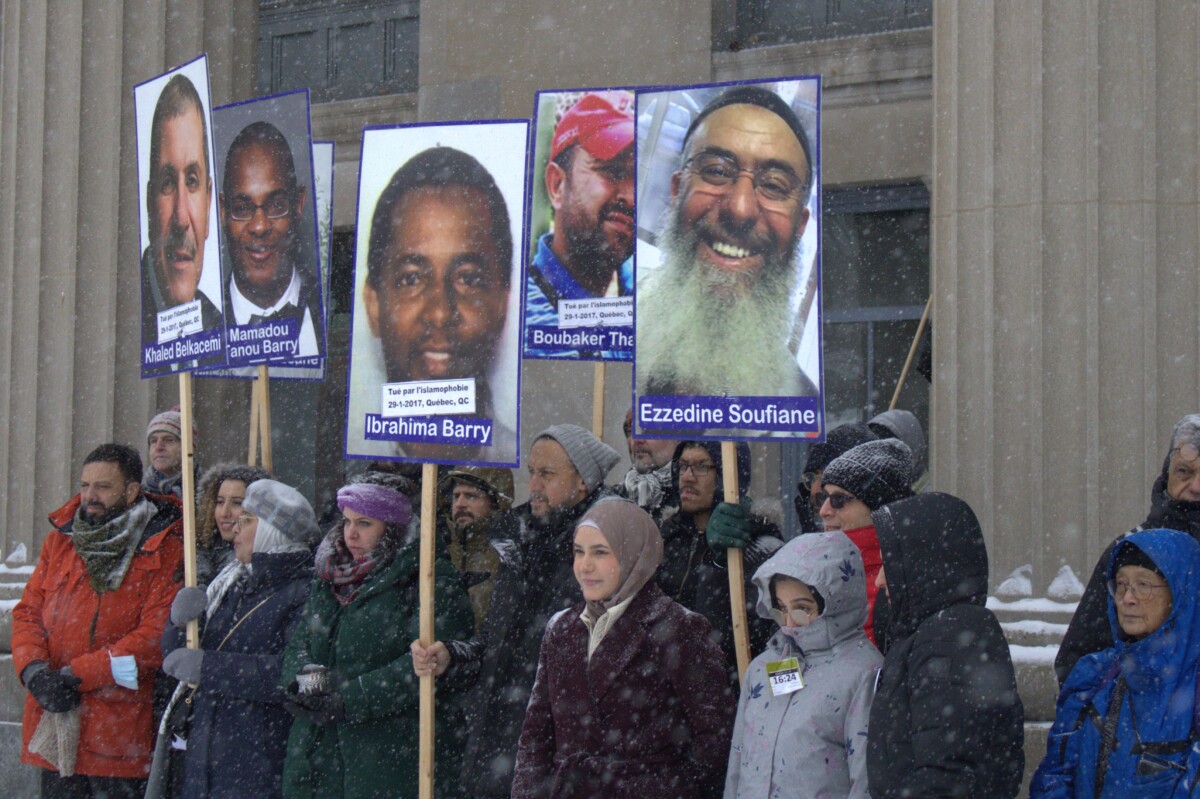Six years after the mosque shooting in Quebec, the Muslim community is still fighting for change
On Jan. 29, six years after the Quebec City mosque shooting, a vigil to commemorate the victims took place at Parc station in Montreal. During the speeches, a man passed behind the crowd and shouted, “Islamophobia doesn’t exist in Quebec!” But is that true?
Hawraa Dbouk, a Concordia student who majors in biology, shared her own experiences: “I once was told, ‘If you want to work there, you might have to take off your hijab, at least at work.’”
“I think we all take hijab in the wrong way, because we don’t actually know what Islam is about. Islam is all about loving, caring, sharing and tolerance,”
said Dbouk.
On the evening of Jan. 29, 2017, gunfire interrupted the prayers in the Islamic Cultural Centre of Quebec City. The shooter killed six people and injured 19, which prompted the public debate on Islamophobia.
With the adoption of Bill 21 on June 16, 2019, the Canadian Muslim community has faced even more challenges. This secularism law prohibits public services and public sector workers from wearing religious symbols like hijabs.
“We can’t neglect how many women are getting fired or not even allowed to get employed because of their hijab,” Dbouk said. “I don’t think any religion should be included in work or should be forbidden. We should raise awareness about Islamophobia and biases. Work with me because I am your co-worker, but not because I am wearing a hijab.”
Ghadir Elsayed, who works as an administrator of Integrated Health and Social Services Centres (CISSS), was one of the volunteers in the Jan. 29 vigil. However, she was one of the only two hijabis in the CISSS healthcare system building.
“When I observed that, it was heartbreaking,”
said Elsayed.
She also talked about her friend who works as a teacher: “They have to find a job in a school in another province, or in Ontario, and it’s even hard for the student to be appreciated by their act and representation of their own religion.”
Elsayed pointed out the fact that there are no specific resources for Muslim people who are affected by the secularism legislation. “Because of Bill 21, we should have a system built up, federally or provincially, to help teachers, students and other workers who are affected by this law to find a job,” she said. “And they don’t have social workers or psychologists that are more available to them than to other communities.”
Elsayed was encouraged by her friends to find jobs in locations that do not accept hijabi workers. “I didn’t want to go straight to my salary,” Elsayed continued, “I just want to make sure that I am represented, and my community is represented[…]”
